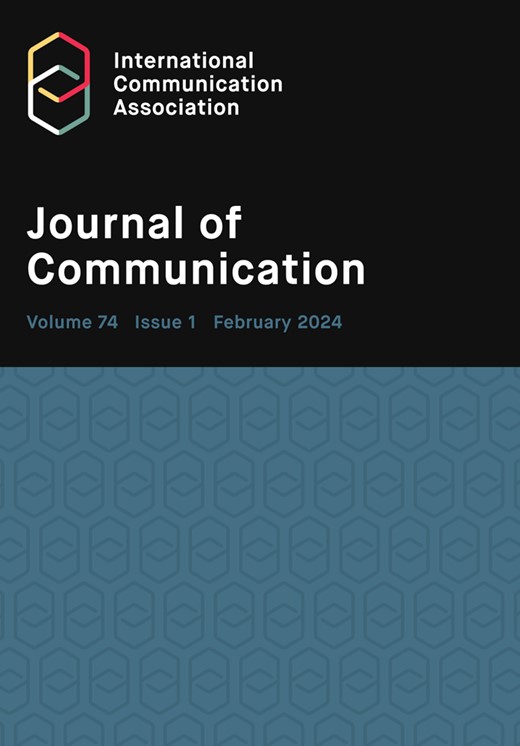An intellectual history of digital colonialism
IF 5.5
1区 文学
Q1 COMMUNICATION
引用次数: 0
Abstract
In recent years, the scholarly critique of tech power as a form of digital colonialism has gained prominence. Scholars from various disciplines—including communication, law, computer science, anthropology, and sociology—have turned to this idea (or related ones such as tech colonialism, data colonialism, and algorithmic colonization) to conceptualize the harmful impact of digital technologies globally. This article reviews significant historical precedents to the current critique of digital colonialism and further shows how digital rights activists from the Global South have been actively developing and popularizing these ideas over the last decade. I argue that these two phenomena help explain why scholars from varied disciplines developed adjacent frameworks simultaneously and at this specific historical juncture. The article also proposes a typology of digital colonialism around six core features. Overall, this article encourages historicizing current debates about tech power and emphasizes the instrumental role of nonscholarly communities in knowledge production.数字殖民主义的思想史
近年来,将技术力量视为一种数字殖民主义的学术批评越来越受到重视。来自不同学科的学者——包括通信、法律、计算机科学、人类学和社会学——已经转向这一观点(或相关的观点,如技术殖民主义、数据殖民主义和算法殖民),以概念化全球数字技术的有害影响。本文回顾了当前数位殖民主义批判的重要历史先例,并进一步展示了来自全球南方的数位权利活动家在过去十年中如何积极发展和普及这些想法。我认为,这两种现象有助于解释为什么不同学科的学者在这个特定的历史节点上同时开发了相邻的框架。文章还围绕六个核心特征提出了数字殖民主义的类型学。总的来说,本文鼓励将当前关于技术力量的辩论历史化,并强调非学术团体在知识生产中的工具性作用。
本文章由计算机程序翻译,如有差异,请以英文原文为准。
求助全文
约1分钟内获得全文
求助全文
来源期刊

Journal of Communication
COMMUNICATION-
CiteScore
11.60
自引率
5.10%
发文量
41
期刊介绍:
The Journal of Communication, the flagship journal of the International Communication Association, is a vital publication for communication specialists and policymakers alike. Focusing on communication research, practice, policy, and theory, it delivers the latest and most significant findings in communication studies. The journal also includes an extensive book review section and symposia of selected studies on current issues. JoC publishes top-quality scholarship on all aspects of communication, with a particular interest in research that transcends disciplinary and sub-field boundaries.
 求助内容:
求助内容: 应助结果提醒方式:
应助结果提醒方式:


